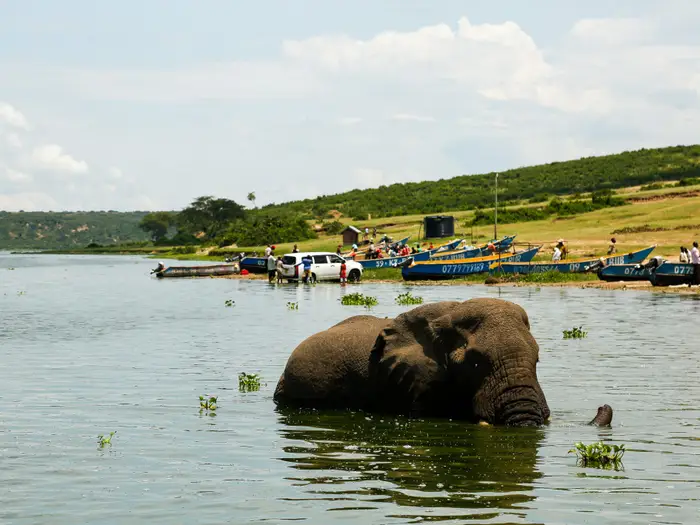6 essential tips for anyone considering van life, according to a traveler who’s explored all 50 states in an RV

Lita Talisman at a campsite in Utah.
Many Americans embraced “work from anywhere” policies during the COVID-19 pandemic, trading permanent residences for homes on wheels.
By 2022, around 3.1 million people in the US were living in vans, a 63% increase from 2020, Yahoo Finance reported.
Travel content creator Lita Talisman, 31, and her husband, Dylan Regan, 30, were among those who made the switch.
In 2021, while they were still living in a Washington, DC, suburb, Regan turned to Talisman one morning and asked, “Why don’t we make a van and move into it?”
And just like that, the duo decided to move out of their current home once the lease ended.
While the decision to travel and move into a van came easily, building the van to fit their needs took them an entire summer.
“For the first few months, we were just working really hard on weekends and some weeknights on converting the van,” Talisman told B-17. “We were working on the van every free second we had.”
Finally, by October 2021, after transforming the van to their liking, they set off on their adventure.
The couple initially planned to travel for just one year, but that journey extended into three years of van life. They only recently moved back to their parents’ home in Washington, DC.
If you’re considering joining the van-life community or plan on remodeling your van for life on the road, Talisman has a few tried and tested tips to help you have a smooth experience.
Here are her six tips for first-time van travelers.
1.Be willing to adjust existing plans.

Lita Talisman suggests that new RVers be flexible since this will save them disappointment when things go as planned.
Social media paints a rosy picture of life on the road, but reality is often less glamorous.
Talisman said that new RVers may have every detail of their trip figured out, but there will always be things beyond their control that could prevent them from sticking to plan.
“First of all, the weather might deter you; second, the campsite you looked up might be closed now, or any sort of thing can happen,” Talisman said.
For this reason, she recommends that people “roll with the punches and not get really upset when things go wrong” because that is the best way to embrace the experience.
2.Keep aside a portion of savings for emergencies.
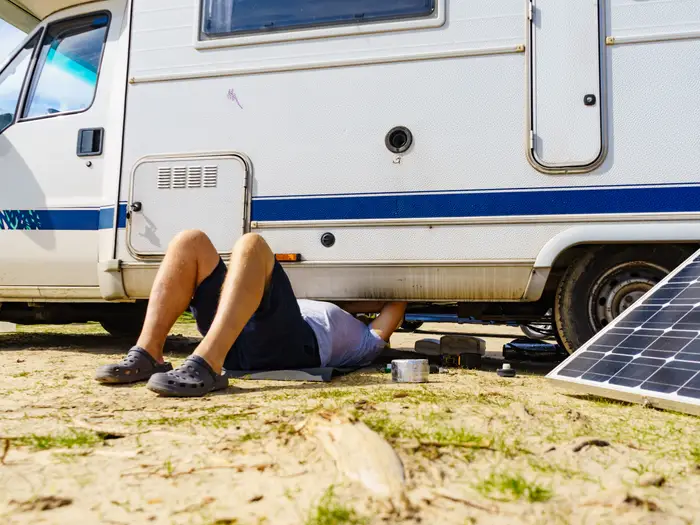
First-time RVers will benefit from having a savings pool, says Lita Talisman.
Talisman said their van’s transmission stopped working this summer. They had to immediately get it fixed and, in the meantime, find alternative lodging, all of which cost a lot of money.
Online RV community forums and repair websites state that a single transmission fix can cost anywhere from $1,200 to $12,000, depending on the damages.
“It’s not only your car; it’s your home. So you have to figure out not just a car to use but also a home to live in while your van is being worked on. Especially if you bought a used van,” said Talisman.
This is why she recommends that first-time RVers build a savings pool for their new lifestyle in the same way that people with permanent homes do.
3.Trust your gut.

Paying close attention to your instincts, says Talisman, will protect you from getting into potentially dangerous situations while traveling or living at campsites.
“I always say, ‘Go with your gut’ if you ever have a weird feeling about anything,” said Talisman.
Over the past three years of traveling, she said she’s had many suspicious experiences. One particular that she remembers well is from a trip to Bend, Oregon.
She told B-17 that a pickup truck parked next to her van and kept the engine running, even though there was plenty of open space and other areas to choose from. She immediately thought something was amiss and moved their van to another spot.
“I definitely think this is especially crucial if you’re traveling alone. But even if you’re a couple, listening to your gut is always important,” Talisman said.
4.Give yourself plenty of time for everyday activities.
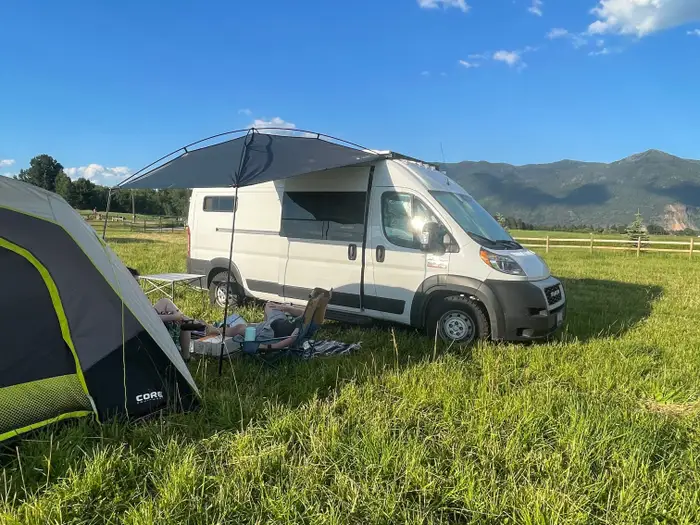
Lita Talisman and her husband, Dylan Regan, enjoyed the outdoors at a campsite in Montana.
Talisman said people should account for and accept that everyday activities, like cooking and cleaning, can take much longer in a van.
Not all places have a grocery store around the corner, so sometimes, you may have to drive for miles for milk.
“Just allocate more time for everything. It’s hard in the beginning, but you’ll get used to that after a while,” she said.
A good way to do this is to track which techniques and what type of routine work best for you on a week-by-week basis. Establishing a routine will initially be difficult, but Talisman says it is possible over time.
5.Practice being in the moment.
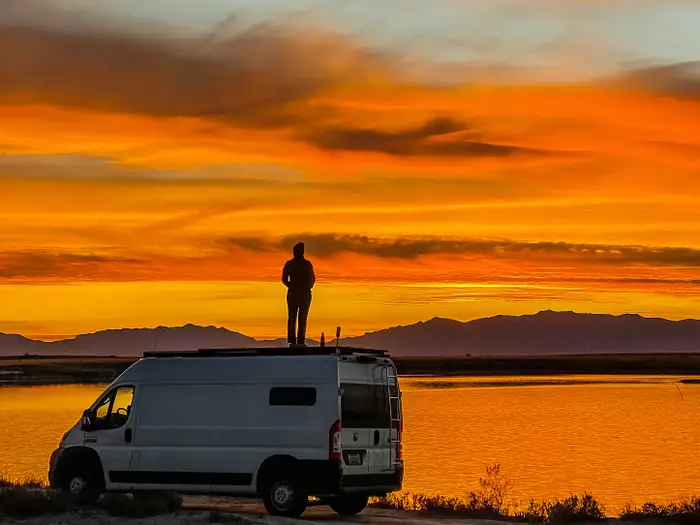
Talisman has seen several sunrises and sunsets. Still, she continues to be amazed by new ones.
“Really practice being in the moment,” said Talisman.
She said that gratitude comes naturally to many van-lifers, like herself, because most days, they’re exposed to the most stunning sights outdoors, leaving them in awe.
“There are so many times my husband and I would look at each other, and even though we lived in it [the van] for three years, we’d be like, ‘I can’t believe we live in a van,'” said Talisman.
6.Work toward building a community on the go.
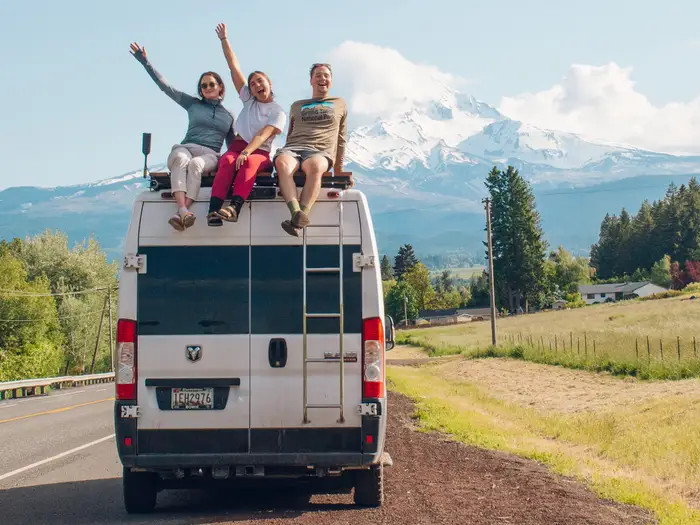
Lita Talisman says building a community, even while you’re traveling almost weekly, is important to combat loneliness.
Many van lifers can either get lonely or become too comfortable being by themselves. However, Talisman thinks “community is important.”
She said, “I can’t only hang out with my husband. I need other social interactions.”
The best way to make friends on the go? “Just meet and talk to people at campsites or follow the big van life community on TikTok and Instagram.” But if all else fails, “join van meetups, which are specifically organized for RVers.”





